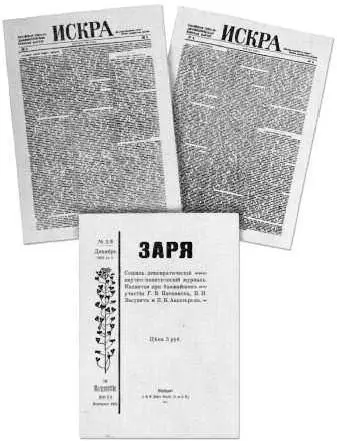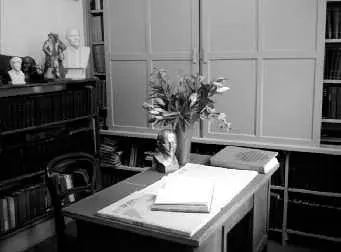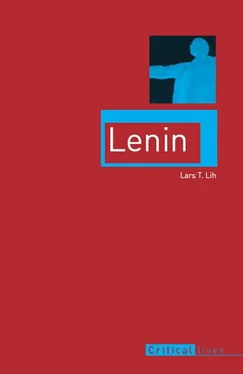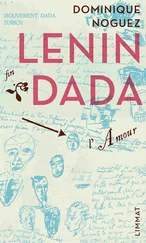Lars Lih - Lenin
Здесь есть возможность читать онлайн «Lars Lih - Lenin» весь текст электронной книги совершенно бесплатно (целиком полную версию без сокращений). В некоторых случаях можно слушать аудио, скачать через торрент в формате fb2 и присутствует краткое содержание. Город: London, Год выпуска: 2012, ISBN: 2012, Издательство: Reaktion Books, Жанр: Биографии и Мемуары, История, на английском языке. Описание произведения, (предисловие) а так же отзывы посетителей доступны на портале библиотеки ЛибКат.
- Название:Lenin
- Автор:
- Издательство:Reaktion Books
- Жанр:
- Год:2012
- Город:London
- ISBN:9781780230030
- Рейтинг книги:3 / 5. Голосов: 1
-
Избранное:Добавить в избранное
- Отзывы:
-
Ваша оценка:
- 60
- 1
- 2
- 3
- 4
- 5
Lenin: краткое содержание, описание и аннотация
Предлагаем к чтению аннотацию, описание, краткое содержание или предисловие (зависит от того, что написал сам автор книги «Lenin»). Если вы не нашли необходимую информацию о книге — напишите в комментариях, мы постараемся отыскать её.
Lenin — читать онлайн бесплатно полную книгу (весь текст) целиком
Ниже представлен текст книги, разбитый по страницам. Система сохранения места последней прочитанной страницы, позволяет с удобством читать онлайн бесплатно книгу «Lenin», без необходимости каждый раз заново искать на чём Вы остановились. Поставьте закладку, и сможете в любой момент перейти на страницу, на которой закончили чтение.
Интервал:
Закладка:
When Lenin came up with his basic ideas of party organization, he was in Siberian exile. When he wrote What Is to Be Done? five years later, he was an émigré in Western Europe. Yet the emotional link between him and the praktiki toiling away in Russian towns is revealed by a letter Lenin received from a party comrade soon after the publication of What Is to Be Done? in 1902. After talking with some Social Democratic ‘purposive workers’, I. I. Radchenko wrote to Lenin:
Before me sat the Lenin type – people longing for the revolutionary trade [ professiia ]. I was happy for Lenin, who sits a million miles away, barricaded by bayonets, cannon, borders, border guards and other features of the autocracy – and he sees how people work here on the shop floor, what they need and what they will become. Believe it, my friends, soon we will see our Bebels [August Bebel rose from worker origins to become the leader of German Social Democracy]. Genuine lathe turners /revolutionaries… doing everything for the cause with the profound faith that ‘I will do this’. I say it one more time: this was the happiest moment of my life. 32
Iskra and the Heroic Scenario
While Lenin served his time in far Siberia the Social Democratic underground was making progress. Against all odds a Social Democratic movement had established itself by the late 1890s in a myriad of individual towns all across Russia. In March 1898 a genuine step toward national unification was taken by a congress in Minsk at which the Russian Social Democratic Worker Party (RSDWP) was founded. In most respects this First Congress was premature: all of its members were promptly arrested and no central party institutions were put in place. But the party now had at least a virtual existence – the local ‘unions of struggle’ began to think of themselves as committees of a national, if still notional, organization. Perhaps the time was right for realizing Lenin’s dream of a Russian Social Democracy that would be ‘a political factor of the highest order’.
Lenin could only observe developments from the sidelines, but he was eager to reach the end of his Siberian exile and get down to work. He had his own ideas about how to turn Russian Social Democracy into a national presence and he was champing at the bit to put them into practice. As soon as his term elapsed in 1899 Lenin met with Martov (also just released from Siberia) and Potresov (who was more of a littérateur and less of a praktik than the other two). Having concerted their plans they spirited themselves abroad in July 1900 (the fake passport obtained for this occasion may have been the origin of ‘Lenin’ as a pseudonym). Before settling down in Munich, Lenin, Martov and Potresov held meetings in Geneva with the older émigrés of the Liberation of Labour group: Georgy Plekhanov, Vera Zasulich and Pavel Axelrod. After a rocky start, due to Plekhanov’s personal prickliness, the first goal of Lenin’s scheme came to fruition: the all-Russian political newspaper Iskra was launched in December 1900.
Iskra would not win any journalistic awards today for layout and design. An issue usually consisted of six pages of three columns each, each column filled to the brim with small type and big words. Some observers complained that it was over the head of worker readers, but the editors were confident that at least the ‘advanced’ and ‘purposive’ workers were up to it and that they could channel the message to other readers. Because it was written, edited and printed abroad, it could come out with a regularity that broke all underground records. Between the first issue in December 1900 and the publication of What Is to Be Done? in early 1902, fifteen issues had come out. During the three years Lenin was on the editorial board (he left late in 1903) there were 51 issues.

Lenin’s ambitious hope was that Iskra would not just be another example of émigré protest literature but would be connected with many threads to actual developments in Russia. The local underground committees would provide Iskra ’s editors with journalistic copy on breaking news, while the Iskra organization would do its damnedest to get copies of Iskra to the committees for further distribution. So began the cat-and-mouse game of false passports, double-bottomed suitcases, secret printing presses and roving emissaries that often ended in confusion and despair, but also resulted in giving all-Russia significance to Iskra . Osip Piatnitsky, one of the young ‘revolutionaries by trade’ entrusted with the task of setting up this underground distribution network, later recalled how he used the services of Lithuanian religious groups who were already smuggling books across the border (books in Lithuanian were prohibited in Russia). This de facto alliance is revealing. Both the Lithuanians and the Social Democrats were determined to spread the good news, as they respectively saw it. 33
Iskra became the centre of Lenin’s life. In 1902, soon after the completion of What Is to Be Done? , the German printers decided that printing Iskra was too risky. So Lenin and Krupskaya moved to London, where they lived from April 1902 to April 1903.
Lenin, along with Krupskaya, was at the centre of the Iskra enterprise: getting people to write articles, writing many of them himself, conducting correspondence, overseeing transport and even putting individual issues to bed at the printer. No task was too menial for Lenin if it meant making the great plan a reality. In many ways the Iskra enterprise was Lenin’s most successful leadership undertaking. Lenin’s devotion to Iskra was closely bound up with his heroic scenario of inspiring class leadership. Newspapers had always been a central feature of the SPD model. Furthermore, Iskra played a crucial role in Lenin’s scheme for creating working party institutions on a national scale. Finally, Lenin’s heroic scenario lay behind the image of contemporary Russia that was ceaselessly propagated by Iskra and other publications of the Iskra team.

Nothing symbolized the German SPD more than the multitude of newspapers that helped propagate its message. By the outbreak of war in 1914 the German party owned more than eighty newspapers. But publishing an illegal newspaper in Russia presented a formidable, almost insuperable obstacle for local organizations. Rabochaia mysl (Worker Thought) in Petersburg and Rabochaia gazeta (Worker News) in Saratov were admirable efforts, but they were of poor technical quality, appeared irregularly and were subject to police repression. Lenin was therefore not the only one calling for a nationwide party newspaper that would point to ‘the common reasons for the oppression of the workers, to the political system and the necessity of struggle against it’. 34
Iskra also had a specific role to play in Lenin’s scheme to create a national party structure. The challenge that faced the new konspiratsiia underground was different in essence from the one that had faced the old-style conspiratorial underground. In the old underground a central group strove to create local offshoots, whereas in the Social Democratic underground isolated local groups were trying to find their way to achieve central coordination. In exile Lenin had worked out an ingenious scheme for using a national underground newspaper such as Iskra to meet this challenge. Iskra could not be the official party newspaper, not yet anyway, because there existed no official party institutions of any kind. To erect a national party authority you needed relatively homogeneous local committees – but to obtain homogeneous committees, you needed a common party authority. How to escape from this vicious circle? Here’s how: begin with the creation of an all-Russian political news paper, published abroad, since the difficulty and risks of publishing it in Russia were too great. At first this newspaper would admittedly be the product of a self-appointed and unauthorized group but it would have the undeniable virtue of actually existing, of actually coming out regularly, many times a year, with at least adequate technical quality.
Читать дальшеИнтервал:
Закладка:
Похожие книги на «Lenin»
Представляем Вашему вниманию похожие книги на «Lenin» списком для выбора. Мы отобрали схожую по названию и смыслу литературу в надежде предоставить читателям больше вариантов отыскать новые, интересные, ещё непрочитанные произведения.
Обсуждение, отзывы о книге «Lenin» и просто собственные мнения читателей. Оставьте ваши комментарии, напишите, что Вы думаете о произведении, его смысле или главных героях. Укажите что конкретно понравилось, а что нет, и почему Вы так считаете.












